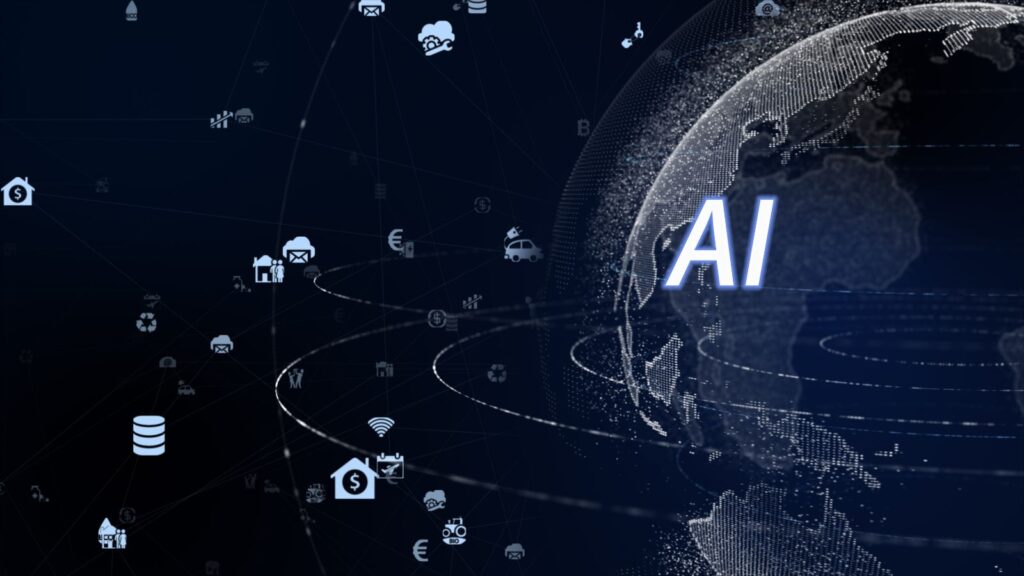How are today’s companies staying competitive in a world where over 90% of all data has been generated in just the last two years?
Can businesses afford to ignore technologies that are projected to contribute up to $15.7 trillion to the global economy by 2030?
These are not hypothetical concerns—they are the pressing realities of the modern corporate world. As digital disruption becomes the norm rather than the exception, enterprise artificial intelligence (AI) and digital innovation are rapidly emerging as critical pillars of success. According to a recent McKinsey report, companies that fully integrate AI across their operations are more than twice as likely to achieve above-average profitability.
AI is not just enhancing efficiency—it is reshaping the very DNA of business strategy, operations, and customer engagement. Digital innovation, powered by AI and other emerging technologies, enables organizations to anticipate market shifts, streamline workflows, and unlock new revenue streams. Together, they are defining the future of enterprise.
The Rise of Enterprise AI
Enterprise AI refers to the application of artificial intelligence technologies within business processes to achieve efficiency, scalability, and intelligent automation. Unlike consumer-level AI, enterprise AI focuses on complex organizational systems, integrating deeply with existing workflows and infrastructures.
Key drivers of enterprise AI adoption include:
- Big Data: The explosion of data has made it essential for companies to deploy AI to extract actionable insights from vast datasets.
- Cloud Computing: With the rise of cloud platforms, businesses can now scale AI models without the need for expensive on-premise hardware.
- Competitive Pressure: Companies face intense competition, making speed and agility through AI a strategic advantage.
AI in the enterprise setting is used for a variety of purposes—from automating customer service with chatbots to using machine learning algorithms for fraud detection, supply chain optimization, and even employee retention strategies.
Digital Innovation: A Broader Ecosystem
Digital innovation extends beyond AI. It encompasses the integration of digital technologies into all areas of business, fundamentally changing how companies deliver value to customers and how employees work. Technologies like the Internet of Things (IoT), blockchain, augmented reality (AR), and advanced data analytics work in tandem with AI to power smarter, more agile enterprises.
The process of digital innovation often involves:
- Digitizing traditional processes: Replacing manual operations with digital workflows.
- Enhancing digital customer experiences: Offering personalized, omnichannel interactions.
- Empowering a remote and connected workforce: Leveraging cloud tools, collaboration platforms, and virtual workspaces.
When AI is embedded within these broader digital initiatives, it enables proactive decision-making and creates more adaptive organizations.
Use Cases Across Industries
1. Financial Services
In banking and finance, enterprise AI is used for fraud detection, risk assessment, algorithmic trading, and customer service automation. AI-driven robo-advisors help in wealth management technology
, while predictive analytics optimize loan approvals.
2. Manufacturing
AI optimizes production lines through predictive maintenance, reducing downtime and improving efficiency. Smart factories use AI sensors and robotics to automate processes and adapt to demand changes in real time.
3. Retail
Retailers leverage AI to enhance the shopping experience through recommendation engines, customer behavior analysis, and automated inventory management. AI also powers dynamic pricing strategies based on real-time data.
4. Healthcare
In healthcare, AI assists in diagnostics, personalized treatment plans, and operational workflows. Natural language processing (NLP) extracts critical insights from unstructured clinical notes, improving patient outcomes and administrative efficiency.
5. Human Resources
AI-based platforms assist in talent acquisition by screening resumes, predicting candidate success, and even conducting initial interviews. AI also helps monitor employee engagement and predict attrition trends.
Benefits of Embracing Enterprise AI
The impact of AI and digital innovation in business is profound. Here are some of the most notable benefits:

Operational Efficiency
AI automates routine tasks and optimizes resource allocation, allowing employees to focus on higher-value activities. This leads to faster processes, reduced costs, and minimized errors.
Enhanced Decision-Making
AI enables data-driven decisions through predictive and prescriptive analytics. Businesses can anticipate market trends, understand customer preferences, and mitigate risks more effectively.
Personalization
From marketing to customer support, AI personalizes interactions at scale. Businesses can tailor messages, products, and services to individual preferences, increasing customer satisfaction and loyalty.
Scalability
Enterprise AI systems are designed to scale with business growth. Whether it’s managing increasing data loads or expanding to new markets, AI supports seamless scaling without compromising performance.
Innovation and Agility
With AI’s ability to analyze trends and simulate outcomes, businesses can rapidly innovate and adapt to changing environments. This agility is crucial in a marketplace that rewards speed and creativity.
Challenges and Considerations
Despite its advantages, the adoption of enterprise AI is not without challenges:
Data Governance
AI systems rely heavily on data, making data quality, privacy, and governance paramount. Poor data can lead to biased or inaccurate models.
Integration Complexity
Integrating AI into existing IT systems and business processes can be complex and resource-intensive. It often requires restructuring workflows and investing in new infrastructure.
Skill Gaps
Implementing enterprise AI requires a skilled workforce familiar with data science, AI modeling, and digital tools. The shortage of talent in these areas can slow adoption.
Ethical Concerns
AI raises ethical questions around bias, transparency, and accountability. Companies must establish ethical AI frameworks to ensure fairness and regulatory compliance.
The Role of Leadership and Culture
Digital transformation isn’t just about technology—it’s about people. Successful enterprise AI adoption depends heavily on leadership commitment and an innovation-friendly culture. Business leaders must foster cross-functional collaboration, encourage experimentation and continuous learning, and align AI initiatives with strategic business goals. Change management is also critical. Employees must be educated about AI’s benefits and reassured about job security and evolving roles. A transparent, inclusive approach helps reduce resistance and builds trust in AI systems. To explore tools that support AI collaboration and workplace productivity, readers can visit https://coworker.ai, a platform designed to streamline team interaction and innovation in the AI-powered workplace.
The Future of Enterprise AI and Innovation
Looking ahead, the enterprise AI landscape will continue to evolve rapidly. Key trends include:
- Generative AI: Tools like large language models (LLMs) are being integrated into business environments for content creation, customer service, and code generation.
- AI-as-a-Service (AIaaS): Cloud providers are offering ready-made AI solutions, making it easier for businesses of all sizes to adopt AI.
- Edge AI: Processing data at the edge—close to where it’s generated—will enable faster responses and reduce reliance on centralized cloud computing.
As AI and digital technologies become more accessible, the barriers to entry will lower, allowing even mid-sized and small businesses to innovate with the same tools as major enterprises.
Conclusion
Enterprise AI and digital innovation are revolutionizing the way businesses operate. From predictive analytics to personalized experiences, AI offers transformative potential for companies willing to embrace change. By aligning technology with strategic goals, fostering a culture of innovation, and addressing implementation challenges head-on, organizations can not only stay competitive—but lead the next wave of business evolution.
The digital future is not just coming—it’s already here. And enterprise AI is the engine driving it forward
